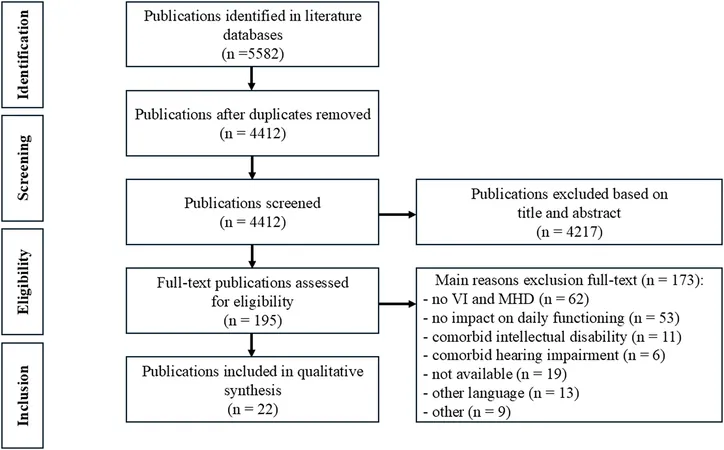
Unlocking the Hidden Benefits of Exercise: A Game-Changer for Brain and Liver Health!
2025-07-05
Author: Emma
When we think of exercise, the first benefits that come to mind are often a toned physique, a healthy heart, or shedding pounds. However, new research unveils a remarkable bonus: exercise can enhance your brain's function significantly! The latest studies demonstrate that engaging in regular endurance exercise not only strengthens your body but also shields your brain—even in times when one of its vital energy sources is lacking.
The Connection Between Your Liver, Ketones, and Cognitive Function
It’s common knowledge that your brain demands ample energy to operate efficiently, primarily sourced from glucose, a type of sugar. However, during extended fasting or vigorous workouts, glucose may dwindle. Enter the liver, which steps up to the plate by producing ketones—alternative fuel molecules crucial for your brain!
But ketones do more than just keep your brain running; they actually support learning, memory, and overall brain health. So, what happens when your liver can’t produce enough ketones? Researchers at the University of Missouri Columbia set out to uncover the surprising truth.
Shock Findings: Ketone Deficiency and Its Impact on the Brain
In their groundbreaking study, scientists limited ketone production by diminishing a liver enzyme known as HMGCS2, which plays a pivotal role in ketone synthesis. They then observed healthy young female rats who either took part in a one-off run or trained on a treadmill five days a week for a month.
The results were startling: the rats with reduced HMGCS2 levels lacked sufficient ketones post-exercise, leading to persistently low ketone levels in their blood. This deficiency had drastic repercussions on their brain function. Remarkably, even after just a single exercise session, the frontal cortex—the brain’s hub for decision-making and memory—showed diminished mitochondrial activity. Since mitochondria are the powerhouses of cells, inadequate function means reduced energy and compromised cell health.
Additionally, in rats unable to produce adequate ketones, brain energy generation plummeted over 50% after consistent exercise!
The Silver Lining: Exercise Still Protects Brain Function
Yet, here comes the twist! Even with inadequate ketone production, the exercising rats exhibited better brain function than their sedentary counterparts. It turns out that exercise can somehow compensate for missing ketones. Over four weeks, the treadmill trainers displayed enhanced memory and signs of increased brain plasticity, alongside improved mitochondrial function, regardless of low ketone levels.
The initial assumption was that insufficient ketones would nullify the benefits of exercise on cognitive abilities. But researchers uncovered that exercise triggers alternative brain-boosting mechanisms, allowing for remarkable cognitive resilience!
Connecting the Dots: The Critical Liver-Brain Link
This research sheds light on the intricate links among our bodily systems. Despite their physical distance, what happens in the liver can significantly influence brain health. If liver function falters—such as through inadequate ketone production—the brain suffers consequences. This fact becomes especially poignant for individuals with liver disease, who often grapple with cognitive issues.
"If liver ketone production fails, it could potentially catalyze cognitive decline, leading to conditions such as dementia,” noted researcher Taylor Kelty. This emerging field known as liver-brain research is gaining traction, revealing the potential for liver issues to elevate Alzheimer’s disease risk.
Exercise: A Gateway to Brain Health!
So, what does all this mean for you? Firstly, it confirms what experts have long suspected: consistent physical activity not only benefits your body but also your mind. Notably, even without ketones, exercise boosts cognitive functioning.
This suggests that physical activity impacts multiple pathways, triggering a cascade of favorable changes—from improved blood flow to enhanced brain cell repair. Professor R. Scott Rector, who co-led the study, commented, "This research illustrates how exercise benefits the body in a multitude of ways, emphasizing the vast potential of exercise in overcoming deficiencies.”
The Future Horizon for Brain Health Research
The researchers aspire that their findings will pave the way for further explorations into how liver conditions affect cognitive functioning and how exercise can support mental acuity as we age. Rector expressed his excitement at the future of this study, aiming to benefit many.
As the scientific community continues to uncover the connections between body systems and brain health, one key takeaway emerges: for a sharp and agile mind, keep moving! Regular endurance exercise stands out as one of the most effective tools you possess, even against challenging odds.
Stay tuned for more enlightening insights—because your brain health might just depend on that next workout!









 Brasil (PT)
Brasil (PT)
 Canada (EN)
Canada (EN)
 Chile (ES)
Chile (ES)
 Česko (CS)
Česko (CS)
 대한민국 (KO)
대한민국 (KO)
 España (ES)
España (ES)
 France (FR)
France (FR)
 Hong Kong (EN)
Hong Kong (EN)
 Italia (IT)
Italia (IT)
 日本 (JA)
日本 (JA)
 Magyarország (HU)
Magyarország (HU)
 Norge (NO)
Norge (NO)
 Polska (PL)
Polska (PL)
 Schweiz (DE)
Schweiz (DE)
 Singapore (EN)
Singapore (EN)
 Sverige (SV)
Sverige (SV)
 Suomi (FI)
Suomi (FI)
 Türkiye (TR)
Türkiye (TR)
 الإمارات العربية المتحدة (AR)
الإمارات العربية المتحدة (AR)